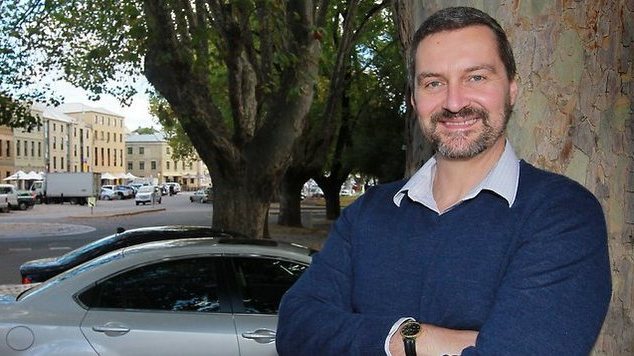OPINION
We can’t be sure exactly what Scott Morrison wants to “prevent” with religious freedom legislation, but there’s enough evidence to make an educated guess.
In a recent television debate I had with Sydney Anglican bishop, Michael Stead, the bishop surprisingly said he did not want wedding businesses and government registry staff to be allowed to turn away same-sex couples, despite having authored a Senate submission to that effect.
Instead, the bishop was focused on a federal law to stop mainland states from protecting LGBTI teachers and students from discrimination by faith-based schools.
He cited a recent move in Victoria to provide such protection that failed by only one vote.
He also expressed concern about calls from advocates to provide such protection in West Australia and the Northern Territory.
He was particularly exercised by the Tasmanian Anti-Discrimination Act that, alone in Australia, already prohibits discrimination against LGBTI people by religious bodies.
The Tasmanian law also bans offensive language, which Stead also wants repealed (he labelled the ban “subjective”, despite the many objective legal tests for offense).
If equal treatment of LGBTI people by faith-based organisations, and laws banning offensive language, are what Scott Morrison intends to “prevent”, then we have moved a long way from the marriage equality debate and are now talking about the role of discrimination law in Australian society.
Exemptions allowing discrimination against LGBTI people by religious bodies have lost legitimacy.
They don’t exist overseas. For example, Britain requires faith-based schools to abide by equality laws if they want public funding.
They don’t exist in Australia’s faith-based aged care facilities, where discrimination against LGBTI staff and residents has been against the law since 2009.
They aren’t supported by the majority of Australians. A YouGov/Galaxy poll from April found 80% of Australians oppose discrimination against LGBTI teachers or students by religious schools.
In recent years there have been public outcries when gay teachers were sacked. A recent example was the firing of a well-loved teacher by a Baptist school in Perth simply because he was gay, leading to a push in that state to remove the exemption allowing such mistreatment.
Even church leaders play down their exemptions by saying it’s not about sacking people, just “upholding an ethos”.
But nothing shows how dated these exemptions are better than Tasmania.
For twenty years Tasmanian faith-based schools, hospitals and welfare agencies have operated as usual, their ethos intact, without the right to sack LGBTI staff.
Notwithstanding some delightful September snowfalls, the sky has not fallen in.
Instead, the rigour of the Tasmanian Act has helped foster a more inclusive and accepting society, as shown by last year’s postal survey where the Apple Isle returned a thumping Yes vote higher than the national average.
Prelates like Stead know the game is up and want the federal government to lock the door against change.
Offensive language laws are more controversial, thanks to the fuss about Section 18c of the Race Discrimination Act.
But again, the Tasmanian Act shows the value of such laws.
Last year the State Government sought to allow hate speech if it was in the name of religion, while an independent MP moved to water down the offensive language provision.
Both initiatives failed because of something few people had previously been aware of.
Under the Tasmanian hate speech and offensive language laws, which apply to a wide range of attributes, the overwhelming majority of complaints are from people with disabilities.
If people like Bishop Stead get their way, it will be the most vulnerable members of our community who will suffer.
As much as I fear Scott Morrison will move to fortify existing laws that allow discrimination, and water down laws that prevent hate, I am also hopeful this will prompt a debate about exactly why we have discrimination laws.
They have been around for long enough to have become part of the legislative furniture and for many people to have lost sight of the principles behind them.
They were intended to provide everyone with the same opportunities in life, be it for an education, a job, or a house.
They were intended to protect our inherent dignity as human beings.
Sacking someone because they are gay, or verbally attacking them because they are in a wheel chair, are indignities Australian society does not tolerate.
Neither should our laws.
Australia is a better place for having anti-discrimination laws.
We will be better still if we strengthen and improve those laws.
Locking discrimination into a new federal law will not only “prevent” laws from being improved, it will stop society improving as well.
Rodney Croome is a long-time LGBTI advocate. He will be speaking at the national Ally Conference at Curtin University on September 27 and 28.
26/09: This article was updated to improve clarity.






